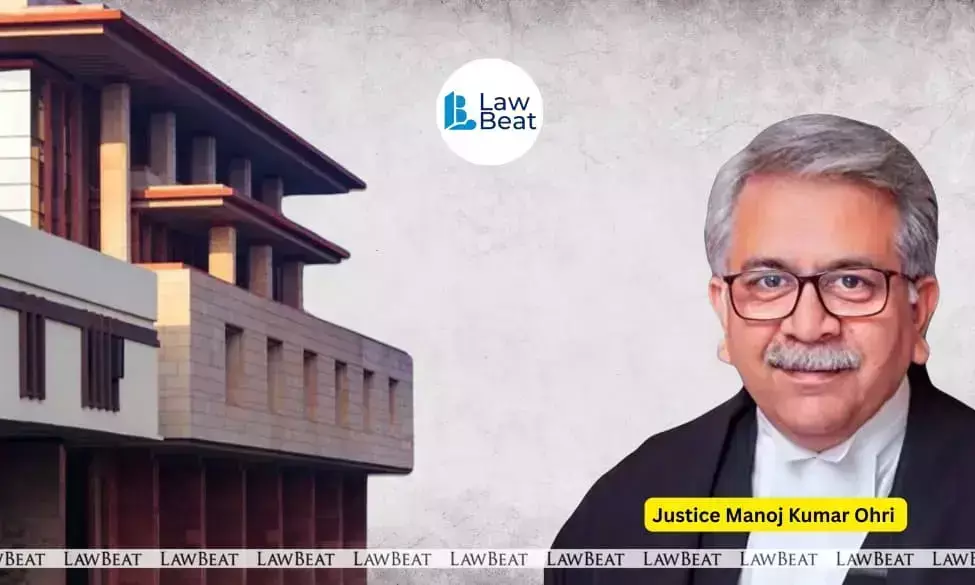Mere Alleging ‘Physical Relations’ Not Sufficient To Establish Rape, Says Delhi HC

Delhi HC: ‘Physical relations’ allegation alone can’t prove rape, acquits man under POCSO
Holding that the mere use of the term “physical relations” without any supporting evidence cannot sustain a conviction for rape or aggravated penetrative sexual assault, the Delhi High Court has acquitted a man sentenced to ten years in jail under Section 376 of the IPC and Section 6 of the POCSO Act.
Justice Manoj Kumar Ohri made the observation while allowing the man’s appeal against his conviction and sentence in a case registered at Alipur police station.
“Whether use of the expression ‘physical relations’ would automatically mean rape or penetrative sexual assault, or whether there has to be some further description or other evidence to establish the connection between the term ‘physical relations’ and the offence?” the court remarked.
According to the prosecution, the complainant, a minor at the time, stated that the accused used to visit her house frequently, proposed marriage to her in 2013, and “established physical relations” with her. On the pretext of marriage, he allegedly continued the relationship for about a year before refusing to marry her in 2014. Distressed, she consumed poison and was hospitalised for nearly two months. The FIR was lodged only after she regained her ability to speak, about one and a half years later.
The trial court had convicted the accused and sentenced him to rigorous imprisonment for ten years, along with a fine of Rs 500.
Challenging the conviction, the defence argued that there was an “inordinate delay” of nearly one and a half years in reporting the alleged offence and that the testimony of the child victim did not contain any clear statement describing penetrative sexual assault. “At no point does the victim specify what was meant by the phrase ‘physical relations’,” counsel submitted.
The prosecution, on the other hand, maintained that the victim was only 16 years old and that the accused had committed rape on a false promise of marriage.
The Court noted that in cases involving child witnesses, it is the statutory duty of the court to ascertain the competence of the witness and ensure the testimony captures essential details of the alleged act.
“If it appears that the testimony of the child witness is lacking in essential details, it is the statutory duty of the court to ask certain questions to obtain proper proof of the relevant facts,” Justice Ohri observed.
In this case, the judge found that neither the prosecution nor the trial court had sought clarity on what the complainant meant by “physical relations”.
“The testimony of the child victim or her parents would show that it has been repeatedly stated that ‘physical relations’ were established; however, there is no clarity as to what was meant by the expression ‘physical relations’. No further description of the alleged act has been given,” the Court noted.
The bench also pointed out that the medical examination was conducted one and a half years after the alleged incident and that the internal examination had been refused. “There is no forensic material on record,” the court said, adding that the delay in lodging the FIR further weakened the prosecution’s case.
“Indeed, this is an unfortunate case,” Justice Ohri remarked. “However, the court is bound to decide the case on its own merits and the evidence that has surfaced on record as well as the precedent of the Division Bench of this Court.”
In the peculiar facts of the case, the judge said that the “use of the term ‘physical relations’, unaccompanied by any supporting evidence, would not be sufficient to hold that the prosecution has proved the offence beyond reasonable doubt.”
Finding that the conviction was “unsustainable,” the Court set aside the trial court’s judgment and acquitted the accused.
“Accordingly, the appeal is allowed and the impugned judgment is set aside,” the order read.
Case Title: Rahul @ Bhupinder Verma vs State of NCT of Delhi
Bench: Justice Manoj Kumar Ohri
Order Date: 17 October 2025
